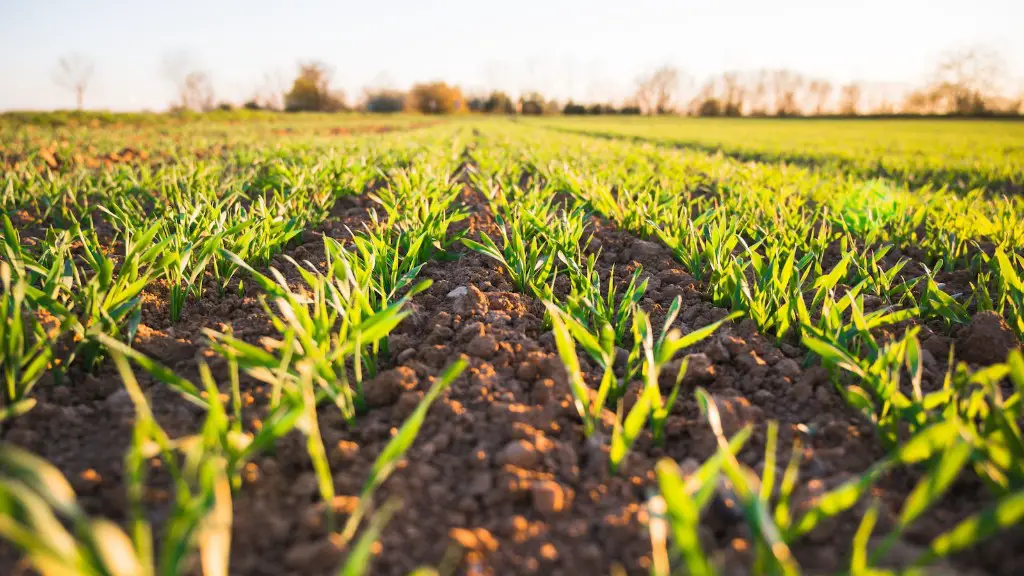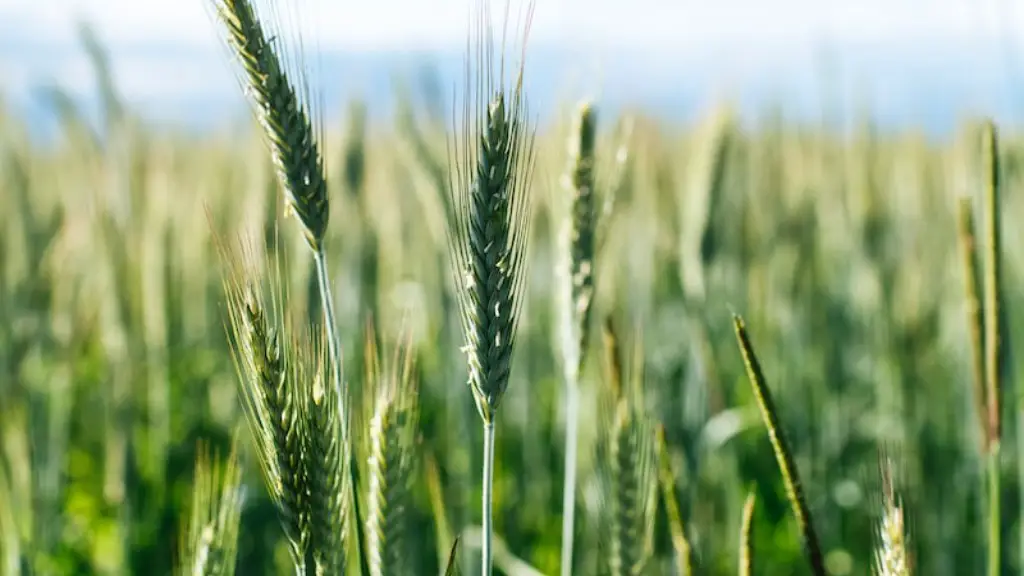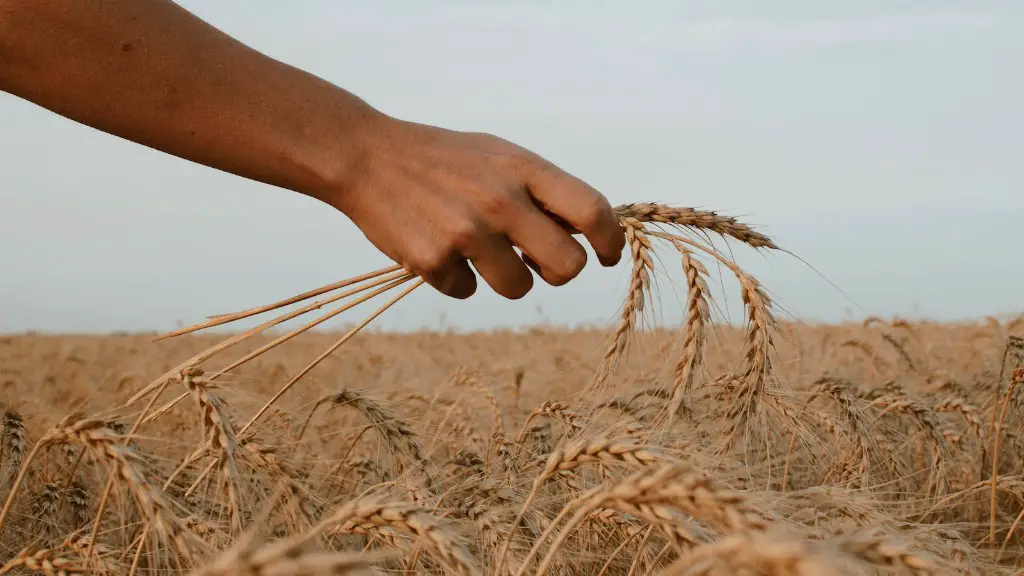The MSP or Minimum Support Price is the price at which the government intervenes in the market to purchase agricultural commodities from farmers. The main purpose of the MSP is to protect farmers from exploitation bymiddlemen and to ensure them a fair price for their produce. The MSP also acts as a floor price to discourage farmers from selling their produce below the MSP.
Minimum Support Price (MSP) is the price paid by the Government to the farmers for their produce. It is determined for 23 commodities
Do farmers benefit from MSP?
The study found that MSP declared by the Government has encouraged 78% of the farmers to adopt improved methods of farming. The MSP has played an important role in improving the lives of farmers and their families. The study also found that the farmers who have adopted improved methods of farming are better off than those who have not.
The MSP is the minimum price that the government promises to pay to farmers for their produce. The MSP is announced by the government before the start of each season. The MSP is a signal to farmers about the minimum price they can expect for their produce. The MSP is not a binding price, but it is an important price signal that affects the prices offered by private buyers. The MSP is intended to protect farmers from being exploited by private buyers. The MSP is also intended to provide farmers with a stable and predictable income.
What is MSP in farmers agitation
The Minimum Support Price (MSP) is the minimum price at which the government is willing to purchase a crop from farmers. The government uses the MSP to ensure that farmers receive a fair price for their crops, and to stabilize prices in the event of a crop failure. The MSP is set by the government every year, and is based on the cost of production, market trends, and the availability of stocks.
The MSP is a vital safety net for farmers, and is one of the key demands of the protesting farmers. The government has so far refused to guarantee the MSP, instead saying that it will continue to purchase crops at market prices. However, with the repeal of the farm laws, there is no guarantee that the government will continue to purchase crops at market prices, and the MSP becomes even more important.
The MSP is an important issue, and the government needs to address the demands of the protesting farmers. The MSP guarantees farmers a fair price for their crops, and ensures that the government will continue to purchase crops in the event of a crop failure. Without the MSP, farmers would be at the mercy of the market, and could potentially suffer huge losses.
The three farm bills that were recently passed by the Indian government have left farmers feeling betrayed and upset. This is because none of the bills mention anything about the Minimum Support Price (MSP) system, which is a key safety net for farmers in India. The Prime Minister and his government have verbally promised that the MSP system will stay, but farmers are finding it hard to trust the government. This is especially true given the fact that the government has been trying to push for the privatization of the agriculture sector. Farmers are worried that the MSP system will eventually be dismantled if the government continues on this path.
What are the disadvantages of minimum support price?
The Minimum Support Price (MSP) is a price floor set by the government in order to safeguard the interests of farmers. However, the MSP has not been increased in proportion to the increase in cost of production, resulting in stagnation. This has adversely affected the incomes of farmers.
Lack of awareness about the MSP among illiterate farmers results in them being exploited by middlemen. They are not able to get the full benefit of the MSP. This needs to be addressed urgently.
An MSP is a great option for businesses who need IT support but don’t have the in-house resources to manage it themselves. MSPs can provide a wide range of services, from network and security to application and infrastructure support. They can also offer hosting services, either in their own data center or in a third-party data center. MSPs are a cost-effective way to get the IT support you need, without having to hire and manage your own IT staff.
How MSP is calculated for each crop?
The MSP is the rate at which the government purchases crops from farmers, and is based on a calculation of at least one-and-a-half times the cost of production incurred by the farmers. MSP is a “minimum price” for any crop that the government considers as remunerative for farmers and hence deserving of “support”.
MSP subscription services, on the other hand, provide access to a pool of IT experts who proactively manage a business’s IT infrastructure, with the aim of preventing issues from occurring in the first place.
Why do farmers sell below MSP
Often, due to various reasons which vary from insufficient procurement levels, unawareness of the MSP programme, inaccessibility of procurement agencies, pre-pledged crops etc, farmers sell their crops below the MSP.
The Minimum Support Price (MSP) is the price at which the government is supposed to procure/buy a crop from farmers if the market price falls below it. The MSP is announced by the government during each cropping season for 23 crops. Simply put, the MSP is a safety net for farmers in the event that market prices for their crops fall below the MSP.
Who decides MSP for farmers?
The Commission for Agricultural Costs and Prices (CACP) is an important body in India that is responsible for suggesting the government on pricing policy for major farm commodities. The commission also looks into other related matters such as import and export of agricultural products, fees and charges related to farm services, subsidies, interventions and other measures that can impact agricultural prices.
The government pays farmers not to grow crops because it is a cheaper way to support the agricultural industry than price support programs. Price support programs are designed to ensure that farmers can always sell their crops for enough to support themselves, but paying farmers not to grow crops is a cheaper way to support the agricultural industry.
What is the problem with MSP
MSP or the minimum support price is the price at which the government buys crops from farmers. This price is usually higher than the market price, to ensure that farmers get a fair price for their produce. However, this also results in the government stocking up on excess crop, which it then needs to dispose off. In order to do this, the government often gives these crops to private companies, who then use them to produce products that are harmful to the environment. For example, the sugar industry in India is known to pollute water bodies, as well as to degrade the quality of the soil. In order to increase profits, these companies often use up all the water in an area, leaving the land dry and barren. This results in a decrease in crop production, and also causes harm to the environment.
The Minimum Support Price (MSP) is a price floor set by the Government of India to purchase agricultural commodities from farmers. The price at which the government purchases these commodities is often higher than the market price, and this difference is called the “support price.” The purpose of the MSP is to protect farmers from exploitation by intermediaries, to ensure fair prices for their produce, and to stabilize prices in the event of a bumper crop or a poor harvest.
The MSP also serves to encourage farmers to produce more food grains, pulses, and oilseeds. In order to achieve this, the MSP is set at a level that covers the cost of production plus a reasonable profit margin for farmers. The MSP is revised every year, taking into account changes in the cost of inputs and shifts in global prices.
The MSP system has been criticized for being inefficent and for benefiting only a small percentage of farmers. Moreover, the MSP does not adequately cover the cost of production for all farmers, and many are forced to sell their produce at below MSP levels. The MSP system also creates market distortions, as farmers are encouraged to produce more of the crops that are currently in demand, rather than diversifying their production.
What are the 23 crops under MSP?
CACP, or the Commission for Agricultural Costs and Prices, is a body set up by the Government of India under the Ministry of Agriculture and Farmers’ Welfare. The commission’s role is to recommend the Minimum Support Prices (MSPs) for 23 agricultural commodities. The commodities comprise 7 cereals (paddy, wheat, maize, sorghum, pearl millet, barley and ragi), 5 pulses (gram, tur, moong, urad, lentil), 7 oilseeds (groundnut, rapeseed-mustard, soyabean, seasmum, sunflower, safflower, nigerseed), and 4 commercial crops (copra, sugarcane, cotton and jute). The commission uses a number of factors to arrive at its recommendations, including the cost of production, changes in input and output prices, international prices, and demand-supply situation.
The Minimum Support Price (MSP) is a price fixed by the Government of India to protect the producers – farmers – against an excessive fall in price during bumper production years. The MSP is a guarantee price for their produce from the Government.
Final Words
The Minimum Support Price (MSP) is the price at which the Government of India guarantees to purchase agricultural produce from farmers. The MSP is determined by the Government to ensure that farmers receive a minimum price for their produce, thereby protecting them from potential losses in the event of a decline in market prices. The MSP also provides farmers with the necessary incentive to increase production.
Agricultural MSP is a government-sponsored program that offers financial assistance to farmers in the form of subsidies. The program is designed to help farmers offset the cost of production and ensure that they are able to sell their crops at a price that is above the cost of production. The program has been successful in helping to improve the incomes of farmers and to stabilize the agricultural sector.





